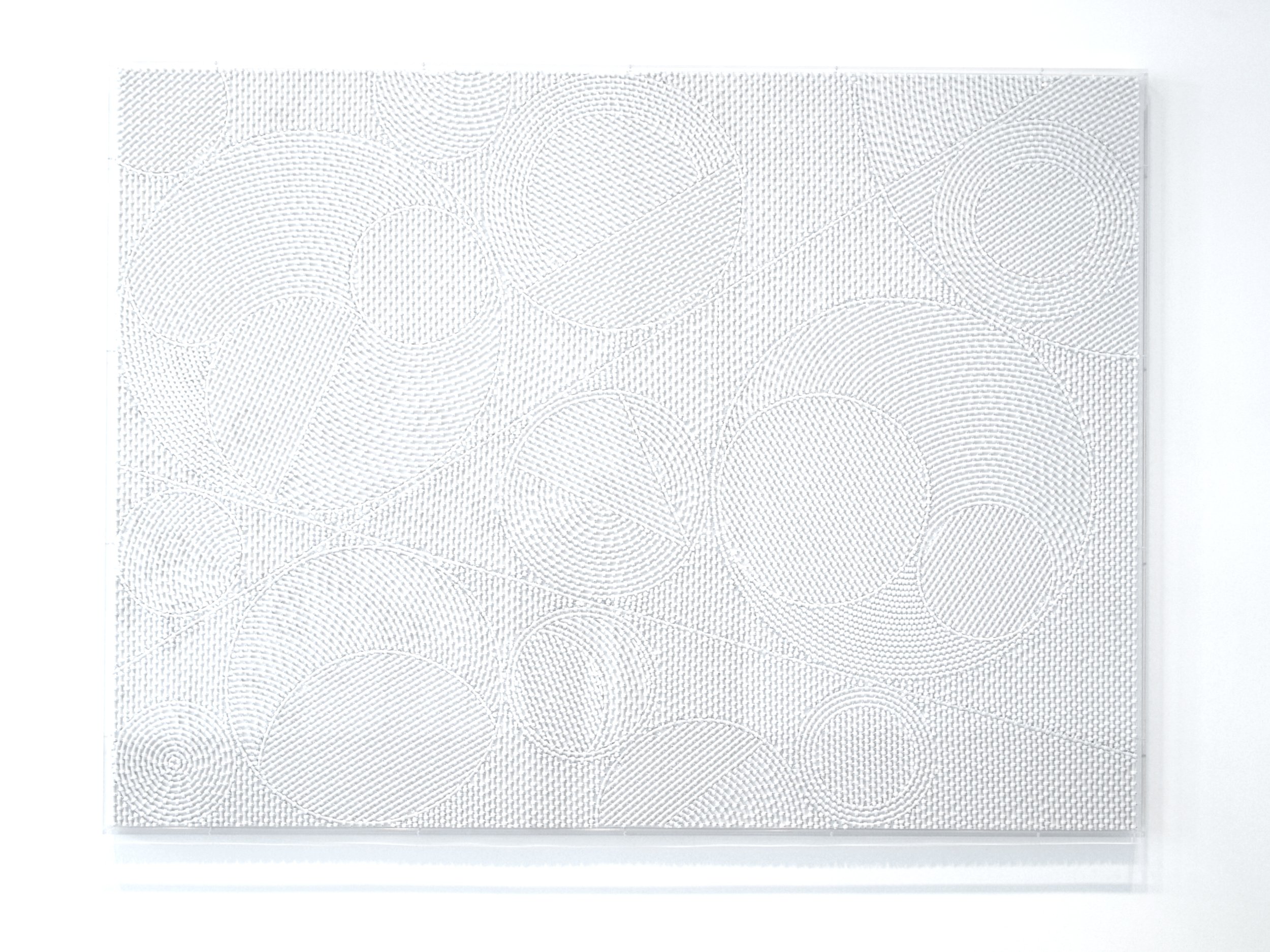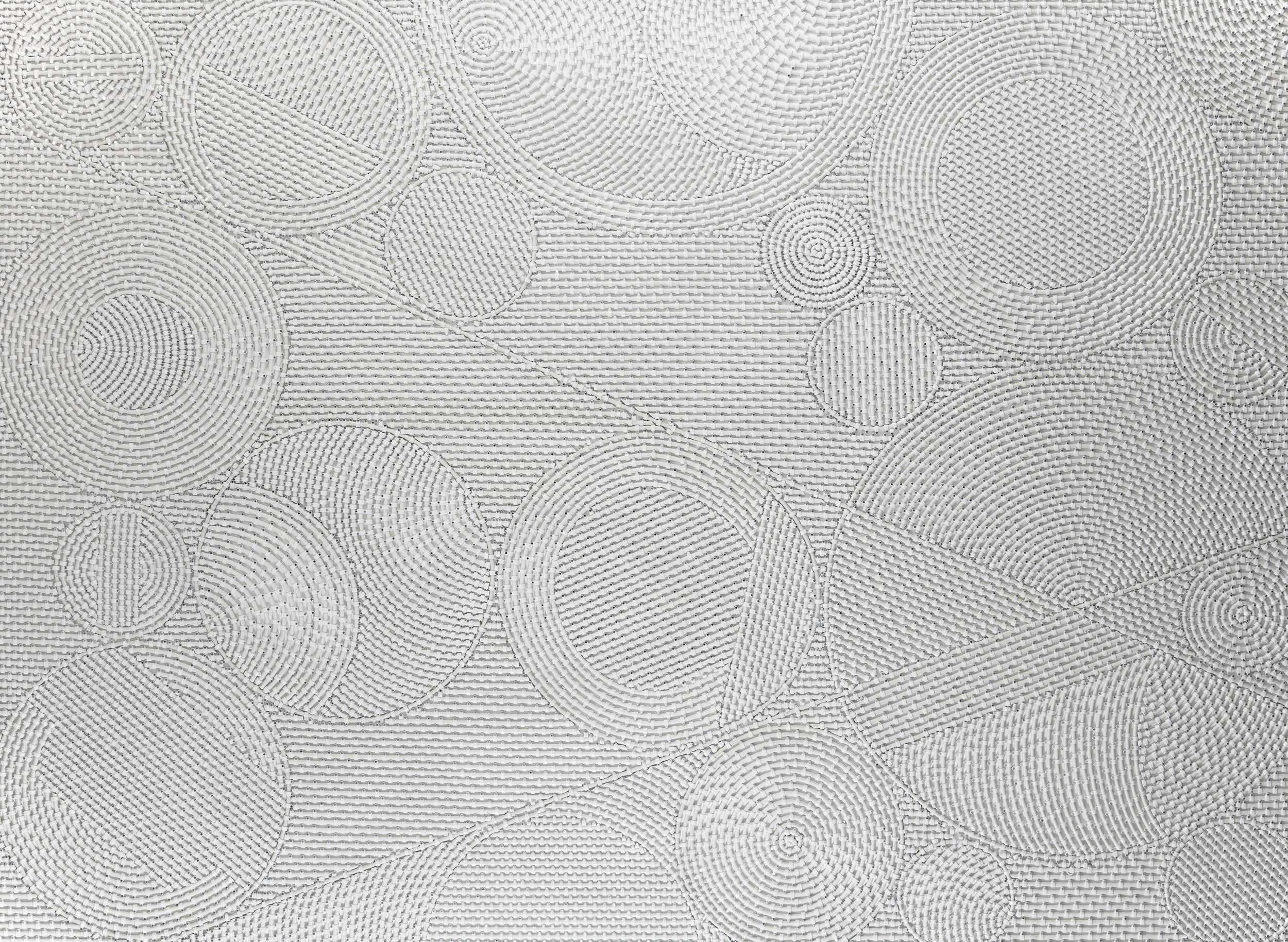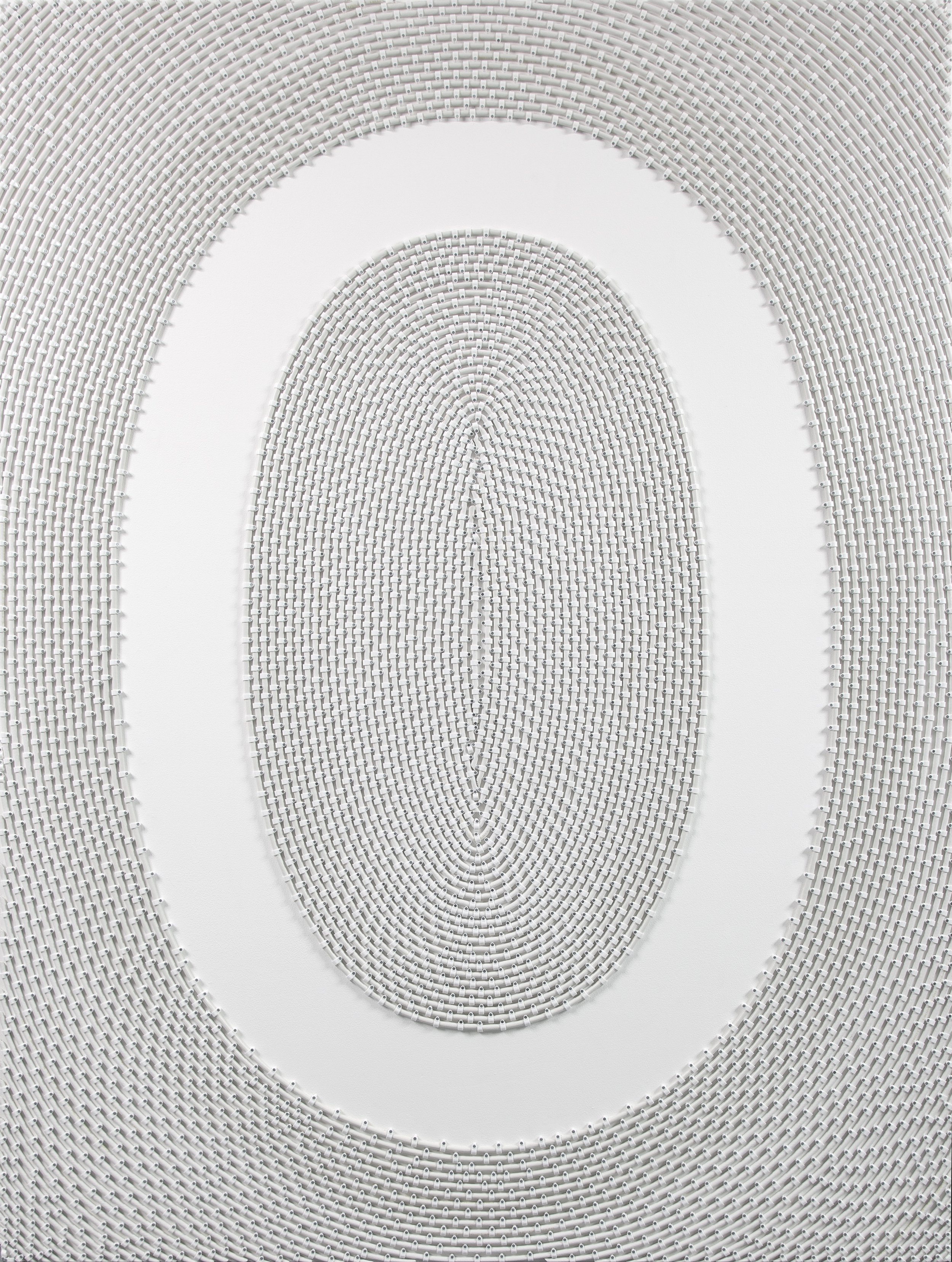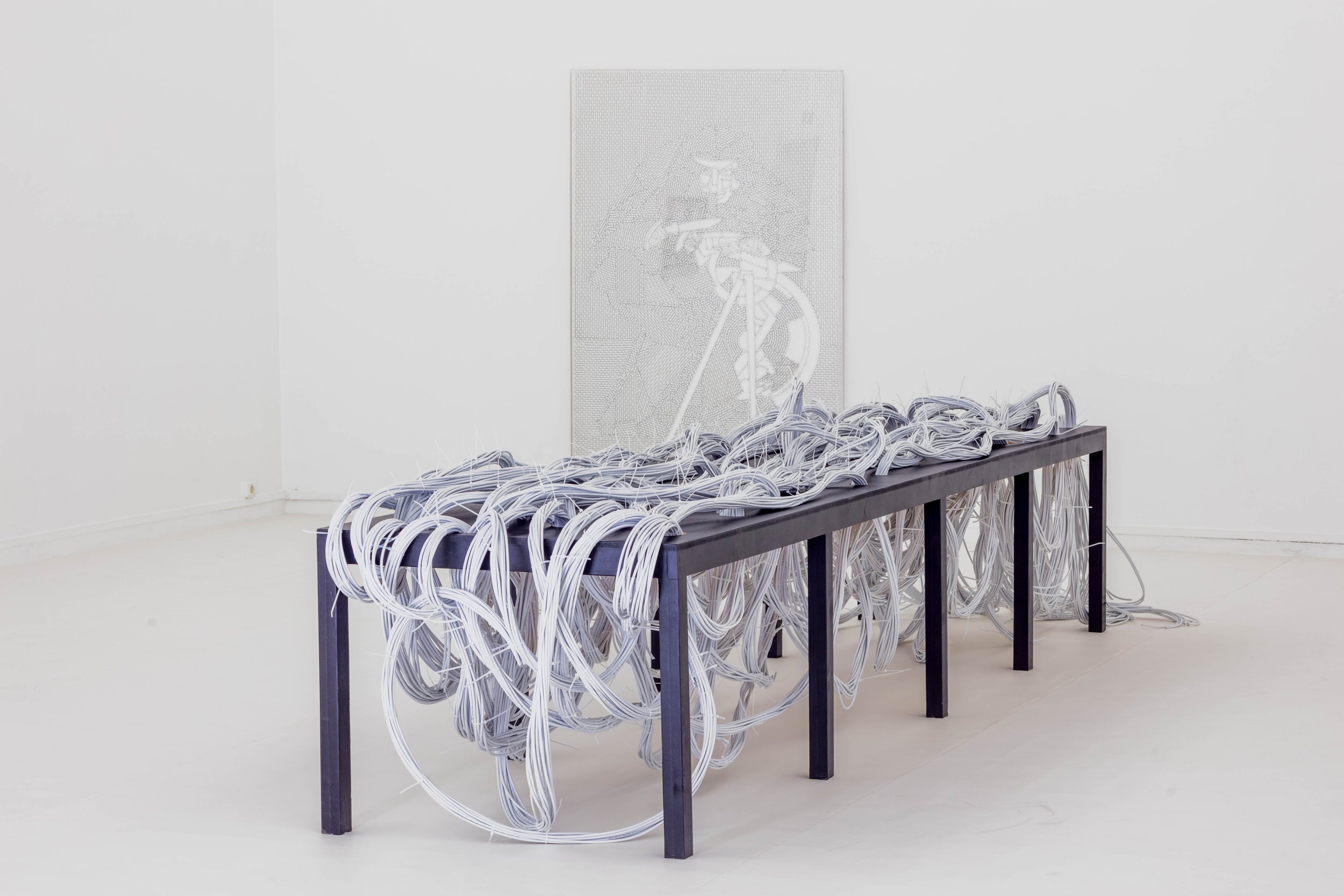




Selected Works
mounir fatmi
Born 1970, Morocco
mounir fatmi was born in Tangiers, Morocco, in 1970. When he was four, his family moved to Casablanca. At the age of 17, he travelled to Rome where he studied at the free school of nude drawing and engraving at the Academy of Arts, and then at the Casablanca art school, and finally at the Rijksakademie in Amsterdam.
He spent most of his childhood at the flea market of Casabarata, one of the poorest neighborhoods in Tangiers, where his mother sold children’s clothes. Such an environment produces vast amounts of waste and worn-out common use objects. The artist now considers this childhood to have been his first form of artistic education and compares the flea market to a museum in ruin. This vision also serves as a metaphor and expresses the essential aspects of his work. Influenced by the idea of defunct media and the collapse of the industrial and consumerist society, he develops a conception of the status of the work of art located somewhere between Archive and Archeology.
By using materials such as antenna cable, typewriters and VHS tapes, mounir fatmi elaborates an experimental archeology that questions the world and the role of the artist in a society in crisis. He twists its codes and precepts through the prism of a trinity comprising Architecture, Language and Machine. Thus, he questions the limits of memory, language and communication while reflecting upon these obsolescent materials and their uncertain future. mounir fatmi’s artistic research consists in a reflection upon the history of technology and its influence on popular culture. Consequently, one can also view mounir fatmi’s current works as future archives in the making. Though they represent key moments in our contemporary history, these technical materials also call into question the transmission of knowledge and the suggestive power of images and criticize the illusory mechanisms that bind us to technology and ideologies.
Since 2000, mounir fatmi’s installations were selected in several biennials, the 52nd and 57th Venice Biennales, the 8th Sharjah Biennale, the 5th and 7th Dakar Biennales, the 2nd Seville Biennale, the 5th Gwangju Biennale, the 10th Lyon Biennale, the 5th Auckland Triennial, the 10th and 11th Bamako Biennales, the 7th Shenzhen Architecture Biennale, the Setouchi Triennial and the Echigo-Tsumari Triennial in Japan. His work has been presented in numerous personal exhibits, at the Migros Museum, Zurich; MAMCO, Geneva; Picasso Museum La Guerre et la Paix, Vallauris; AK Bank Foundation, Istanbul; Museum Kunst Palast, Düsseldorf; Gothenburg Konsthall and Es Baluard Museu, Palma de Mallorca. He also participated in several collective exhibits at the Centre Georges Pompidou, Paris. Brooklyn Museum, New York. Palais de Tokyo, Paris. MAXXI, Rome. Mori Art Museum, Tokyo. MMOMA, Moscow. Mathaf, Doha, Hayward Gallery and the Victoria & Albert Museum, London. Van Abbemuseum, Eindhoven, at Nasher Museum of Art, Durham and Louvre Abu Dhabi.
He has received several prizes, including the Uriöt prize, Amsterdam, the Grand Prix Léopold Sédar Senghor at the 7th Dakar Biennale in 2006, as well as the Cairo Biennale Prize in 2010, and the Silver Plane Prize, Altai Biennale, Moscow in 2020.
Selected Solo Exhibitions
2023
Whispered Stories of Forgotten Wires, Piero Atchugarry Gallery, Miami
100 mètres à vol d’oiseau, L’appartement 22, Rabat
Breaking the Cycle, Baró Galeria, Palma de Mallorca
2022
While the Storm Arrives, Es Baluard Museu, Palma
How Much is Enough, Ceysson & Bénétière, Saint-Etienne
The Point of No Return, Wilde Gallery, Basel
Yesterday Was a Terrible Day, Casa Conti, Oletta
Tangier - something is possible, Musée de la Kasbah, Tangier
2021
Heavier than Words, Conrads Gallery, Berlin
The Age of Consequences, Officine dell'Immagine, Milan
The Observer Effect, ADN Galeria, Barcelona
2019
Keeping Faith - Keeping Drawing, Analix Forever, Geneva
A matter of perception, Skanstull Metro Station, Stockholm
The White Matter, Galerie Ceysson & Bénétière, Paris
The Process, Wilde Gallery, Geneva
2018
180° Behind Me, Göteborgs Konsthall, Göteborg
This is My Body, Art Bärtschi & Cie, Geneva
The Human Factor, Tokyo Metropolitan Teien Art Museum, Tokyo
The Day of the Awakening, CDAN Museum - Centro de Arte Y Naturaleza, Huesca
This is My Body, Analix Forever, Geneva
Holy Water, Galerie de Multiples, Paris
2017
Fragmented Memory, Goodman Gallery, Johannesburg
Peripheral Vision, Art Front Gallery, Tokyo
Ghosting, Galerie De Multiples, Paris
(IM)possible Union, Analix Forever Gallery, Geneva Survival Signs, Jane Lombard Gallery, New York Le Pavillon de l’exil, Galerie Delacroix, Tangier
Transition State, Officine dell'Immagine,Milano
Inside the Fire Circle, Lawrie Shabibi , Dubaï
Darkening Process, Analix Forever Gallery, Geneva
Under the Skin, Maisons des Arts du Grütli, Geneva
Museum Collections
Sindika Dokolo Foundation, Luanda
Art Gallery of Western Australia, Perth
Queensland Art Gallery of Australia, Brisbane
Collections de la Province de Hainaut et du BPS22
AGO, Art Gallery of Ontario, Toronto
Collection Today Art Museum, Beijing
Fondation Louis Vuitton pour la création, Paris
Fonds National d'Art Contemporain, Paris
Fonds Régional d'Art Contemporain d'Alsace, Sélestat
Fonds Municipal d'Art Contemporain, Paris
MAMC Les Abattoirs, Toulouse
Cité nationale de l'histoire de l'immigration, Paris
Rosenblum & Friends, Paris
Foundation Frances, Senlis
FDAC L'Essonne & Château de Chamarande
Bibliothèque Municipale de Lyon
Museum Kunstpalast, Düsseldorf
Nadour, Krefeld
Written Art Foundation, Frankfurt
The Tiroche DeLeon Collection
Fondazione Cassa di risparmio di Modena, Modena
Fondazione Luciano Benetton
Darat al Funun, The Khalid Shoman Foundation, Amman
Louvre Abu Dhabi Collection, Abu Dhabi
Articulate Contemporary Art Fund, London
The Brooklyn Museum, New York
Hessel Foundation for the Bard Museum, New York
Nasher Museum of Art at Duke University, Durham
Past Exhibitions
September 23 — November 11, 2023
Whispered Stories of Forgotten Wires marks newly represented artist, mounir fatmi’s (b. 1970), first solo-exhibition in Miami. Focusing on issues such as identity, multiculturalism, methods of communication, and the ambiguity of linguistic codes, mounir fatmi projects his own cultural realm onto shared emotional universes that find fundamental narrative consistency in the evolutionary concept of memory. Without dialogue, without communication, memory would not spread, and when it does not spread, memory loses its strength. For fatmi, the power of language, investigated as a sort of participatory experience, becomes an anthropological matter, reflecting cultural stratification.







